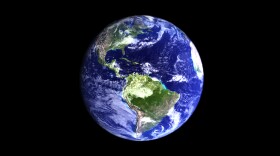-
Historically, an “everyone is a VIP” philosophy made good business sense for Disney amusement parks. But now Disney is embracing tiered services. Daniel Currell explains why and what’s to come.
-
Again and again, similar patterns show up in nature in different creatures at different times in their evolutionary histories—even when those life forms have evolved on much different paths for hundreds of millions of years. And when they show up, as it turns out, we often perceive them as beautiful. So, the question is: Why?
-
Again and again, similar patterns show up in nature in different creatures at different times in their evolutionary histories—even when those life forms have evolved on much different paths for hundreds of millions of years. And when they show up, as it turns out, we often perceive them as beautiful. So, the question is: Why?
-
Again and again, similar patterns show up in nature in different creatures at different times in their evolutionary histories. And when they show up, we often perceive them as beautiful. Why?
-
Deep in the ocean, jellyfish, shrimp, fireworms and other creatures use multi–colored lights for defense, luring food, attracting mates, and communication. In their new book, Steven Haddock and Sönke Johnsen explore the nature of underwater light—investigating the varieties of transparency, pigmentation, iridescence, bioluminescence, and fluorescence found in the watery beyond.
-
Deep in the ocean, jellyfish, shrimp, fireworms and other creatures use multi–colored lights for defense, luring food, attracting mates, and communication. In their new book, Steven Haddock and Sönke Johnsen explore the nature of underwater light—investigating the varieties of transparency, pigmentation, iridescence, bioluminescence, and fluorescence found in the watery beyond.
-
The Trump administration is seeking an across-the-board 20% cut to NASA's total funding, and nearly all of that reduction is concentrated in science mission directorate.
-
Emerging research suggests that human attention spans are getting shorter. That’s a problem for people who want to make change in a world in which the issues we’re facing are growing ever more complicated. So now, perhaps more than ever, it’s important to understand the art and science of giving a good speech — and few people in Canada do that better than David Shepherd. But Shepherd says none of this came naturally to him.
-
Emerging research suggests that human attention spans are getting shorter. That’s a problem for people who want to make change in a world in which the issues we’re facing are growing ever more complicated. So now, perhaps more than ever, it’s important to understand the art and science of giving a good speech — and few people in Canada do that better than David Shepherd. But Shepherd says none of this came naturally to him.
-
Dan McClellan loves the Bible. He doesn’t always love what it says. But he works hard not to try to mold it into something that he wants it to be — to meet it, he says, on its own terms.

Play Live Radio
Next Up:
0:00
0:00
Available On Air Stations






